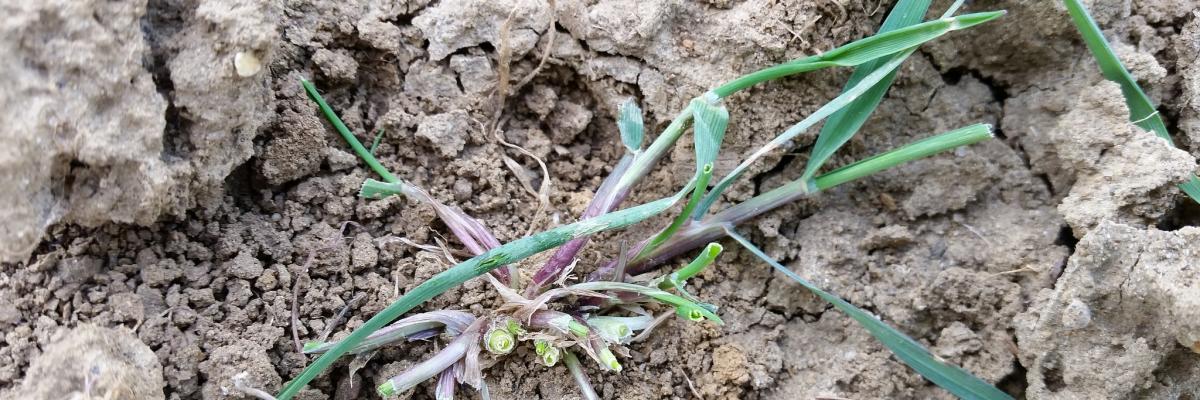
Black-grass: solutions to the problem
Information Sheet 30
Download the PDF
A good combination of methods for weed management can help you control black-grass, reduce your herbicide costs, and keep you in line with environmental regulation. This information sheet published by AHDB summarises key methods for increasing your control of black-grass, indicating levels of control that can be achieved which are based on a comprehensive review of more than 50 field experiments. It outlines important non-chemical methods (e.g. ploughing, delayed autumn drilling, spring cropping etc.) and their effectiveness in controlling black-grass. It also provides essential information for understanding black-grass and its behaviour (e.g. emergence pattern and depth, etc.). It presents an example of how a combination of chemical and non-chemical methods can help you achieve as much as 99% control of black-grass.
- About 80% of black-grass emerges during autumn, when most UK farms sow their crops.
- Drilling your field will not get rid of black-grass - it emerges with crops.
- Herbicides alone may not be able to control black-grass on your farm:
- Resistance to herbicides is increasing
- Herbicides are not the cheaper option on some fields
- Existing herbicides may be withdrawn due to regulation
- Priority should be given to non-chemical methods of plant protection wherever possible:
- Rotating
- Ploughing
- Delayed autumn drilling
- Competitive crops
- Spring cropping
- Fallowing/grass ley breaks
- Methods for preventing seed return and spread of resistant seeds
- Different control methods have different efficacies, so tailor them to your field.
- Five key factors are essential to the success of an integrated control strategy: Emergence pattern, emergence depth, seed longevity in soil, population dynamics, and competitiveness.
- Do resistance tests: they will tell you if your herbicides work on your weed, save you from unnecessary herbicide use, and help you plan long-term strategies. However, lack of ‘resistance’ to non-chemical methods means that they should provide more durable control than chemicals.
Explore further AHDB Cereals & Oilseeds black-grass resources here.

